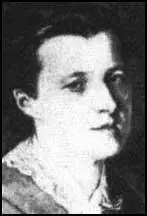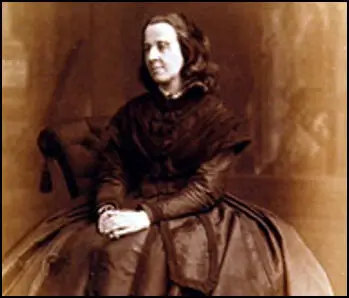Bessie Rayner Belloc

Bessie Rayner Parkes, the daughter of the solicitor, Joseph Parkes, was born on 16th June 1829. Her grandfather was Joseph Priestley, the scientist and political reformer who was forced to leave the country in 1774. Bessie's father was also a Unitarian with radical political views and was a close friend of reformers such as Henry Brougham and John Stuart Mill.
In 1846 Parkes met Barbara Bodichon, who was running a progressive school in London. The two women became close friends and over the next few years wrote several pamphlets on women's rights, including Remarks on the Education of Girls (1856).
Parkes and Bodichon felt that there was a need for a journal for educated women and in 1858 they founded The Englishwoman's Review. Parkes became editor and over the next few years she made the journal available to writers campaigning for women doctors and the extension of opportunities for women in higher education.
Parkes continued to publish pamphlets and in Essays on Women's Work (1866) she argued that the laws of the country were based on the assumption that women were supported by their husbands or fathers, but with a shortage of men in the country, this was becoming less likely to happen. Parkes therefore suggested that it was necessary to improve the standard of education for girls.
In 1866 Parkes joined with Barbara Bodichon to form the first ever Women's Suffrage Committee. This group organised the women's suffrage petition, which John Stuart Mill presented to the House of Commons on their behalf.
On a visit to France in 1867, Parkes met Louis Belloc. The couple fell in love and decided to marry. Both families objected to the couple getting married. Belloc was younger than Parkes and had been an invalid for thirteen years. Barbara Bodichon also advised against the relationship but the marriage went ahead.

After Louis Belloc died of sunstroke in 1872, Bessie returned to London with her two children. Belloc had abandoned her Unitarian beliefs and was now a member of the Roman Catholic Church. She was also no longer interested in women's rights. Her daughter, the successful novelist, Marie Belloc-Lowndes, showed little interest in the suffrage movement, and her son, Hilaire Belloc, was one of Britain's leading anti-feminists, being opposed to both women having the vote or experiencing higher education.
Bessie Rayner Belloc died on 23rd March 1925.

